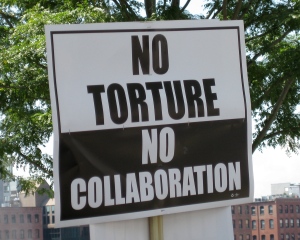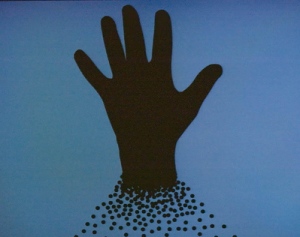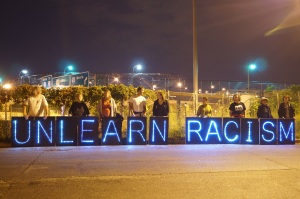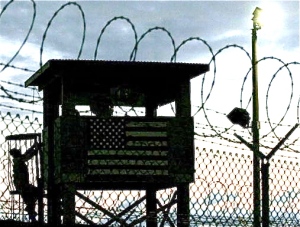
"The position of the American Psychological Association is clear and unequivocal: For more than 25 years, the association has absolutely condemned any psychologist participation in torture."
— Statement by the APA, November 2013
"The American Psychological Association, the largest professional organization for psychologists, worked assiduously to protect the psychologists who did get involved in the torture program."
— James Risen, Pay Any Price: Greed, Power, and Endless War, October 2014
********
New information may soon be revealed by the Senate Intelligence Committee’s yet-to-be-released report on the CIA’s post-9/11 abusive and torturous detention and interrogation operations. But what already has been clear for a long time – through reports from journalists, independent task forces, congressional investigations, and other documents – is that psychologists and other health professionals were directly involved in brutalizing “war on terror” prisoners in U.S. custody. Of particular note, contract psychologists James Mitchell and Bruce Jessen have been identified as the architects of the CIA’s “enhanced interrogation techniques,” which included waterboarding, stress positions, exposure to extreme cold, sensory and sleep deprivation, and isolation.
At the same time, what has remained a matter of dispute is the extent to which the American Psychological Association (APA) collaborated with and worked to support the intelligence community and its program of torture and cruel, inhuman, and degrading treatment. Critics (including both of us) have argued that the APA repeatedly failed to take the steps necessary to prevent the misuse of psychology, instead allowing perceived opportunities for a “seat at the table” to trump a firm commitment to professional ethics. In response to these allegations, the APA’s leadership has issued denials and statements asserting that the Association has always been steadfast in its opposition to torture.
Where the truth lies in this ongoing debate just became much clearer with the publication of James Risen’s new book, Pay Any Price: Greed, Power, and Endless War. In a chapter titled “War on Decency,” the Pulitzer Prize winning investigative journalist offers fresh evidence from an unexpected inside source: Scott Gerwehr, a RAND Corporation analyst with close ties to the CIA, the Pentagon, and the APA. When Gerwehr died in a motorcycle accident in 2008, he left behind an archive of personal emails, which Risen obtained while conducting research for his book.
Read the rest of this entry »
 Smooth-talking con artists are familiar figures in American folklore. The well-dressed hustler arrives in an unsuspecting town. He pitches some miracle cure or get-rich-quick scheme, door-to-door or from atop a soapbox. Then before his customers realize they’ve been duped, he steals away in search of his next mark. It’s a risky vocation, one that demands quick feet, a keen understanding of human nature, and a talent for telling stories that both arouse and reassure.
Smooth-talking con artists are familiar figures in American folklore. The well-dressed hustler arrives in an unsuspecting town. He pitches some miracle cure or get-rich-quick scheme, door-to-door or from atop a soapbox. Then before his customers realize they’ve been duped, he steals away in search of his next mark. It’s a risky vocation, one that demands quick feet, a keen understanding of human nature, and a talent for telling stories that both arouse and reassure.







